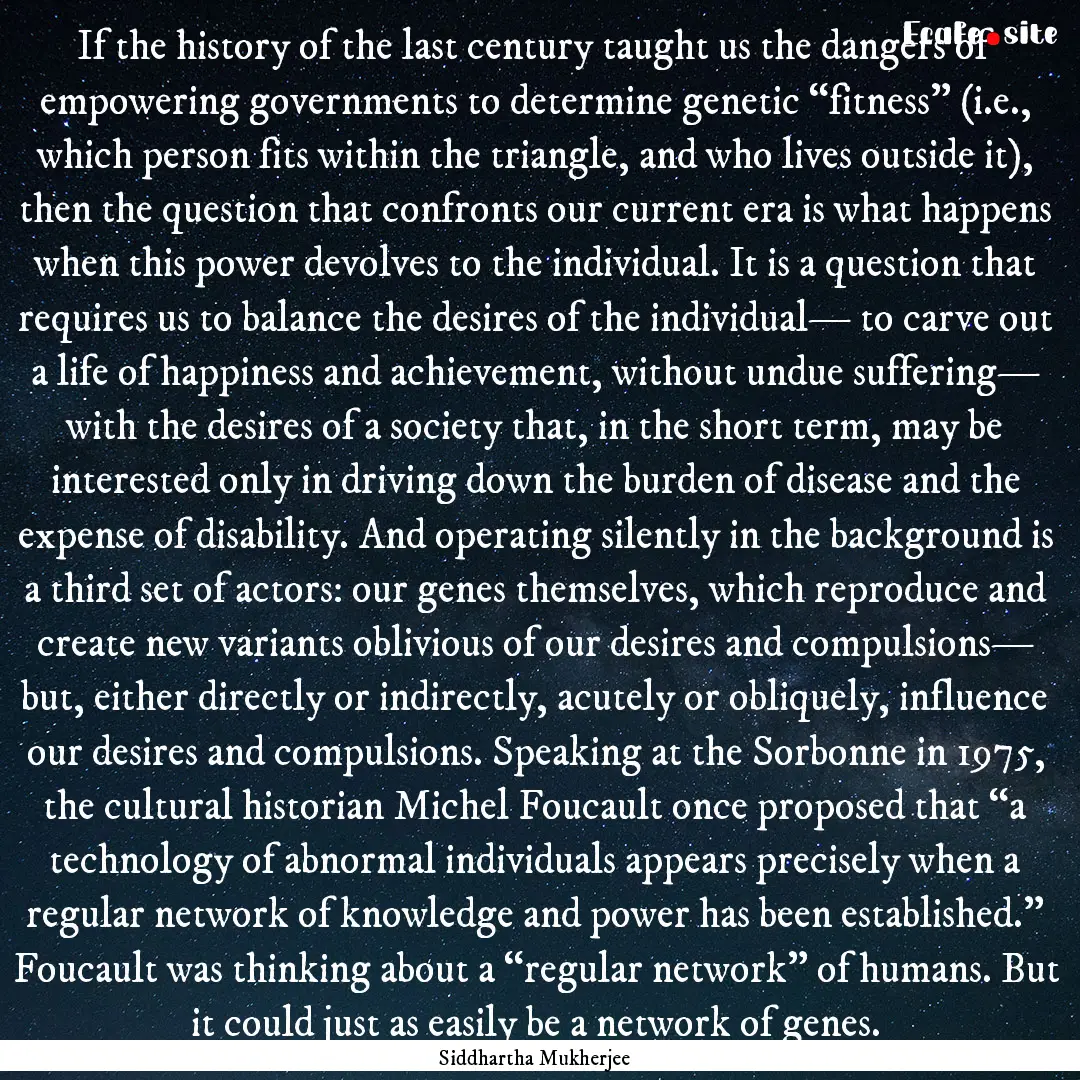
Report, if you have a problem with this page“ If the history of the last century taught us the dangers of empowering governments to determine genetic “fitness” (i.e., which person fits within the triangle, and who lives outside it), then the question that confronts our current era is what happens when this power devolves to the individual. It is a question that requires us to balance the desires of the individual— to carve out a life of happiness and achievement, without undue suffering— with the desires of a society that, in the short term, may be interested only in driving down the burden of disease and the expense of disability. And operating silently in the background is a third set of actors: our genes themselves, which reproduce and create new variants oblivious of our desires and compulsions— but, either directly or indirectly, acutely or obliquely, influence our desires and compulsions. Speaking at the Sorbonne in 1975, the cultural historian Michel Foucault once proposed that “a technology of abnormal individuals appears precisely when a regular network of knowledge and power has been established.” Foucault was thinking about a “regular network” of humans. But it could just as easily be a network of genes. ”

Siddhartha Mukherjee
From : The Gene: An Intimate History



